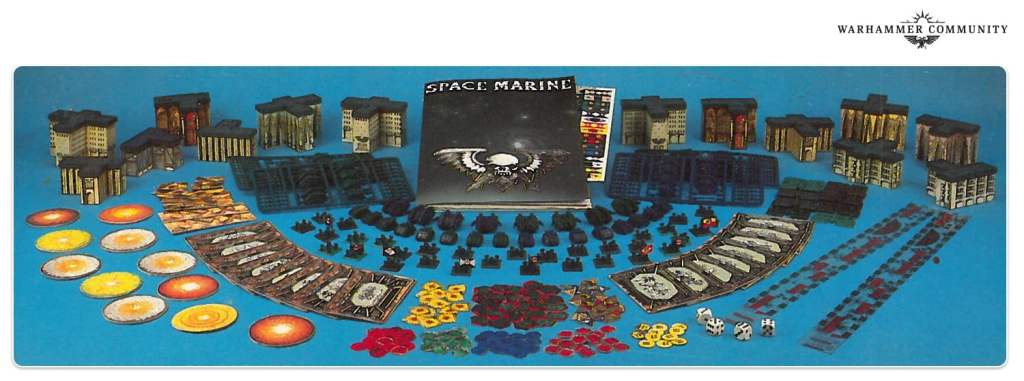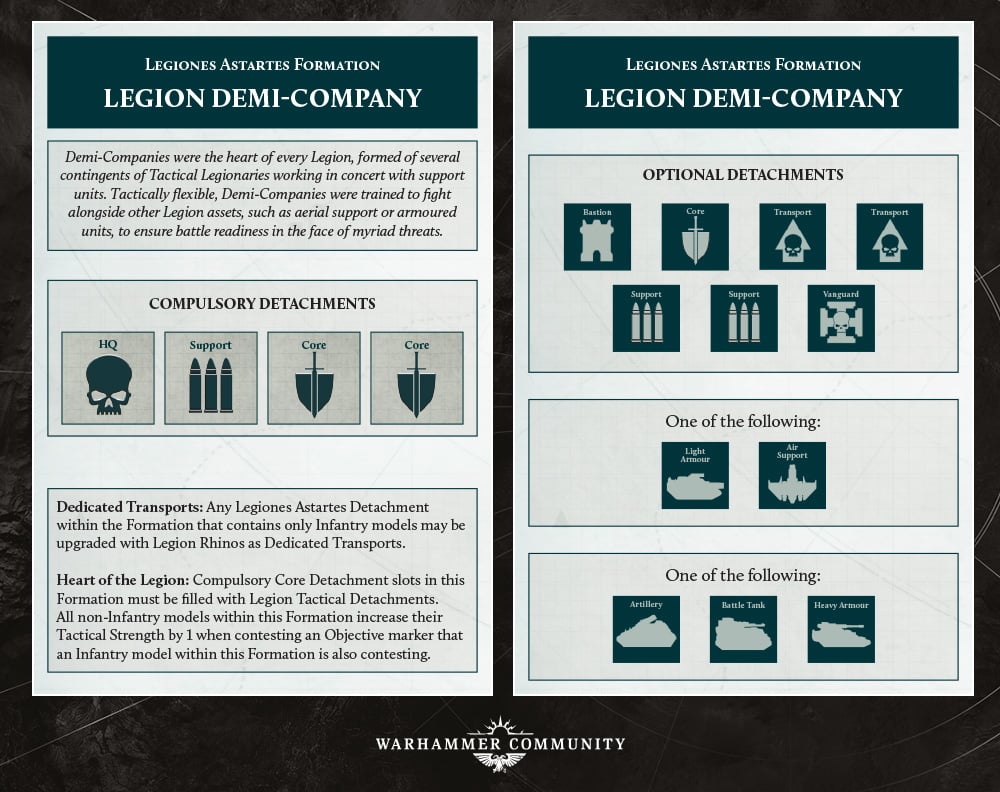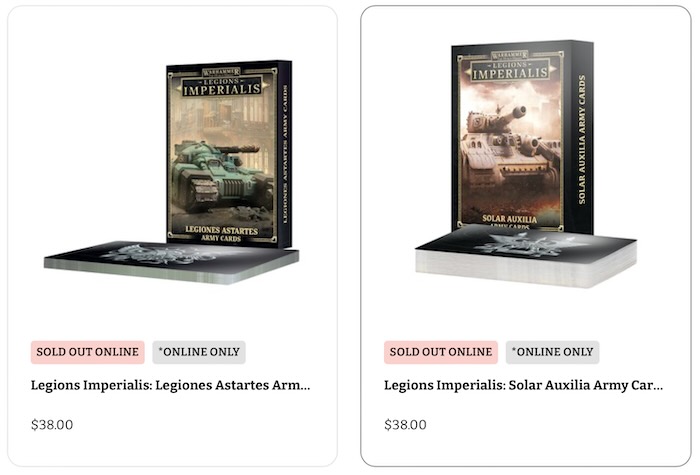Games Workshop recently released an 8mm miniature game, Legions Imperialis, set in the Horus Heresy setting. It pits forces of Loyalist and Traitor Marines, tanks, Titans and infantry against one another letting you refight the battles of the Horus Heresy. I am not exaggerating when I say that I have been waiting for the game for more than two decades.
Now this isn’t one of those blog posts about how I won’t be playing the game for one reason or another. I mean, I do have reasons for not playing it. Mostly that my hands and wrists are affected by my arthritis so much that I can’t paint. That and my finances. I am unofficially retired and I don’t have the hobby funds that I used to. If it wasn’t for that I would be up to my neck in small miniatures, painting away and getting ready for games.
I love the Horus Heresy. I also love small-scale miniature games like this. Quite some time ago I spent several years helping Games Workshop’s Specialist Games offshoot test the Epic: Armageddon rules. I also helped write several army lists that were going to be officially supported by Specialist Games. If I had my way I would still be playing Epic: Armageddon right now.
So what is this about then?
There are two reasons. The first is that I want to vent a bit about not being able to play a game that I have been hoping to see for a long time. I almost bought the boxed set from local store when I saw it even though I know that I wouldn’t be able to paint any of the figures. Or probably even assemble them.
The second is to discuss why I think that Games Workshop used a very unpopular game system as the basis for the new Legions Imperialis rules.
Unpopular?
Back in 1989, Games Workshop released the Space Marine miniature game.

Like Adeptus Titanicus before it, this game only had Space Marine miniatures included and so it defaulted to the Horus Heresy era as a way to give you an excuse for your Marine v. Marine battles. It was a popular boxed set as it had quite a large amount of miniatures, terrain and some very nice unit data cards. I remember buying this and rushing back to my dorm to set it up with my friend Glen.
It did have one significant downside that, I think, hobbled the game. The rules required you to assign secret orders to each detachment in your force at the beginning of the turn. Each player did this based on what they thought that their opponent was going to do and what their own plans were. Then the orders were revealed and you went through each stage of the turn alternating the activation of detachments based on those orders.
In theory this is a useful way to add some ‘fog of war’ to a tabletop miniature game. Games of this type tend to give players an omniscient level of information about the battlefield. Trying to plan your orders out in advance with no knowledge of your opponents intentions is tricky. There are several significant problems with this system though.
Decision paralysis
Some people take a lot of time to make their minds up. When you put them in the position of having to make multiple decisions all at once based on little to no concrete information then they shut down. Getting orders placed in a game of Space Marine could take forever. This is no fun for anyone. The person who is doing it feels pressure to get their turn done quickly and the people doing the waiting are bored out of their minds.
Ha Ha!
The system also lead to instances where one person wildly misjudged their opponents intentions or mixed up the order of the phases in the turn. Or they mistook the Advance token for the Full Movement token and left a detachment in the open to get fired on. No matter why it happened, the game lead itself to players having wasted turns or turns where they got shot to pieces. Also no fun.
Selection bias
The game also tended to reward people who could handle the order system. Your strategy might not be as good as your opponent but you don’t mess up your order phase and you win. A comparable situation were the folks that could estimate the distance on a gaming table better than their opponents and so their ‘guess’ weapons in Warhammer Fantasy Battles always hit. No-one likes to lose but losing because you mixed up a token or the order of the phases was even worse.
So why use them now?
When information first came out about the game I assumed that they would be using the Epic: Armageddon rules or some variant of them. E:A was tested by a large number of people over probably thousands of games. It had some issues but it was a very fun set of rules and they played very well. Most importantly, they didn’t get in the way of playing the game and they let you focus on the table, your figures and your strategy. Finding out that they were using the Space Marine rules was quite a shock.
Now I don’t know as many people in the miniature game industry as I used to so I am making a guess here as to why the Powers That Be at Games Workshop did use the Space Marine rules instead of Epic: Armageddon.
Accessories
The Space Marine game was set in the Horus Heresy as is Legions Imperialis. The former to save costs on the game by making fewer different moulds for plastic miniatures. Space Marine already had that attachment to the era. That isn’t a satisfying answer though.
If you look at most Games Workshop miniature games released you see that they almost all come with army card decks, dice, mission decks, and tactic cards. I suspect that you can play the games without them but the accessories make it easier. Games Workshop also has a fairly good margin on them. In the past you could play 40K with just a copy of the rules and your particular army book. Now you have probably $100-200 worth of extras that you can add on if you want.
Space Marine second edition (1991) expanded the unit cards from the first edition with detachment cards.

As the game expanded with new armies and units the number of cards expanded. They were included in the boxed sets that you would purchase to get the rules, detachment cards and templates for each new army. If you were a fan of the game you were soon flooded with them. You can probably find some on eBay right now if you look.
They were fun but they took up a fair bit of your table. It did make generating an army quite simple though.
Epic: Armageddon has a very good system of army building and definition. It doesn’t require cards though. The criteria and restrictions for an army could take up half a page and the definitions of the formations the other half. The list of individual units might take up some space but there was no need for anything like detachment cards. I seem to recall that the lack of them was a specific design goal.
That would still leave Games Workshop with dice or maybe mission cards but those army decks are a big profit centre.

The prices are in Canadian dollars and represent a cost of $0.8 per card. The game currently has two decks available but once there are Traitor Legion army lists available or daemons or heretic Mechanicus forces there will be more decks. I am surprised though that there aren’t any dice available right away since the Forge World Horus heresy dice are difficult to get.
The problem of availability
You may also notice, from the image above, that the cards aren’t available online anymore. Almost none of the Legions Imperialis products are but the lack of availability for these types of accessories is something that has plagued Games Workshop for quite a few years. Getting the stat cards to play Aeronautica Imperialis was next to impossible. I am not sure how necessary these decks are to playing Legions Imperialis I never played Aeronautica Imperialis because I could never find the stat card decks I needed. This may be a problem in the future for anyone playing this new game.
None of this is my problem
In a happier world where I could paint and also had the disposable income to buy the miniatures, I wouldn’t really care about this issue regarding accessories. I would paint up my minis and play games using Epic: Armageddon. They are, I have to assume, E:A army lists online tailored to fit the way that Games Workshop is packaging these new minis. And if there wasn’t it would be the matter of a few hours to make one up. I would be happily painting Sicarian tanks and probably selling my rulebook and cards to friends.
It is interesting to think about how their desire to force a game into a particular sales model has, potentially, influenced their decision of what rules to use for the new game.
I’m not buying Games Workshop games anymore. Miniatures, maybe, but there are better game rules and comparable miniatures available. GW is a corporation, only interested in profit. I have “Xenos Rampant” and One page rules to try and both look like more fun than Warhammer 40k.
I am going to be making another post today or tomorrow discussing that topic